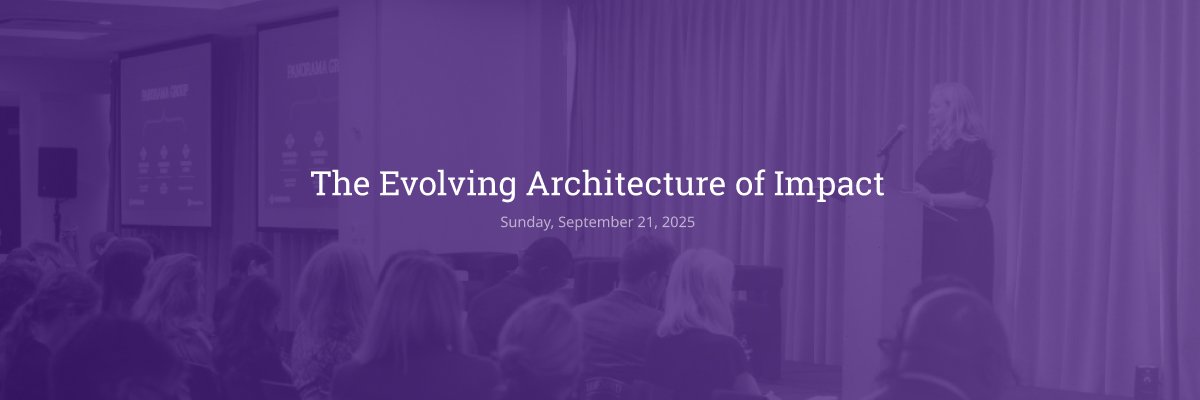
This year’s United Nations General Assembly (UNGA) and Climate Week NYC were alive with bold ideas and cross-sector energy, bringing global leaders into nonstop meetings, events, receptions, and collaborative discussions. The sidelines of UNGA remained unparalleled for convening leaders, decision-makers, innovators, and changemakers shaping the global agenda who are re-imagining how the world tackles its most urgent challenges.
Yet the political and policy landscape is shifting. New U.S. visa requirements—such as the visa bond pilot asking some visitors to post up to $15,000 to attend events—risk limiting global participation (NYT). For many leaders, this creates steep financial barriers and threatens diversity of voices in rooms where decisions are made. That reality makes it even more important for those who can be present to amplify the perspectives of those who cannot and advance the collective conversations that drive progress.
Against this backdrop, Panorama hosted its second Leadership Forum: The Evolving Architecture of Impact on the sidelines of UNGA and Climate Week. More than 200 attendees gathered for an afternoon of bold dialogue, practical insights, and new connections. With 16 speakers spanning the social sector ecosystem, including philanthropy, media, and advocacy, the forum unpacked urgent global challenges, spotlighted innovative practices, and explored new models for collective action. Together, we saw what’s possible when courageous leaders and catalytic partners come together to remove barriers and scale bold solutions.
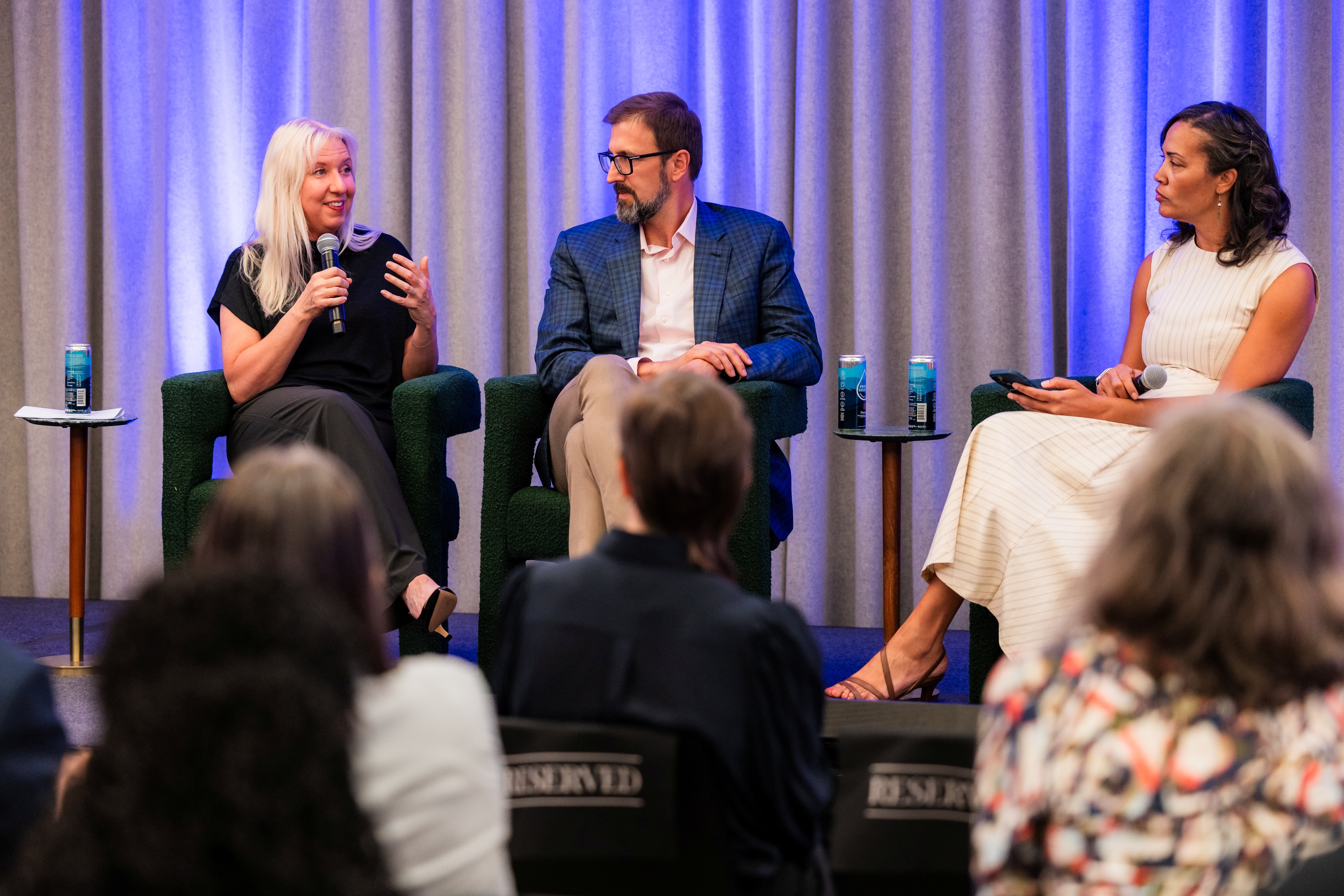
Photo: Peter Cooper, for The Panorama Group
The opening conversation, moderated by Melanie LeGrande, Managing Director at Panorama Strategy, set the tone with a clear-eyed view of the turbulence facing social impact leaders. Jeremy Konyndyk, President of Refugees International, urged leaders to “protect, preserve, and pivot”—holding onto what works while finding creative ways to adapt.
Michelle Milford Morse, Vice President for Girls and Women Strategy at The United Nations Foundation, reminded us how fragile progress can be while delivering a call to courage: “You are not overmatched. If you care, you are part of a global majority.” It was a reminder that purpose and persistence matter most when the path forward feels uncertain. Even amid instability, leadership and collaboration are essential.
"You are not over-matched. If you care, you are part of a global majority."
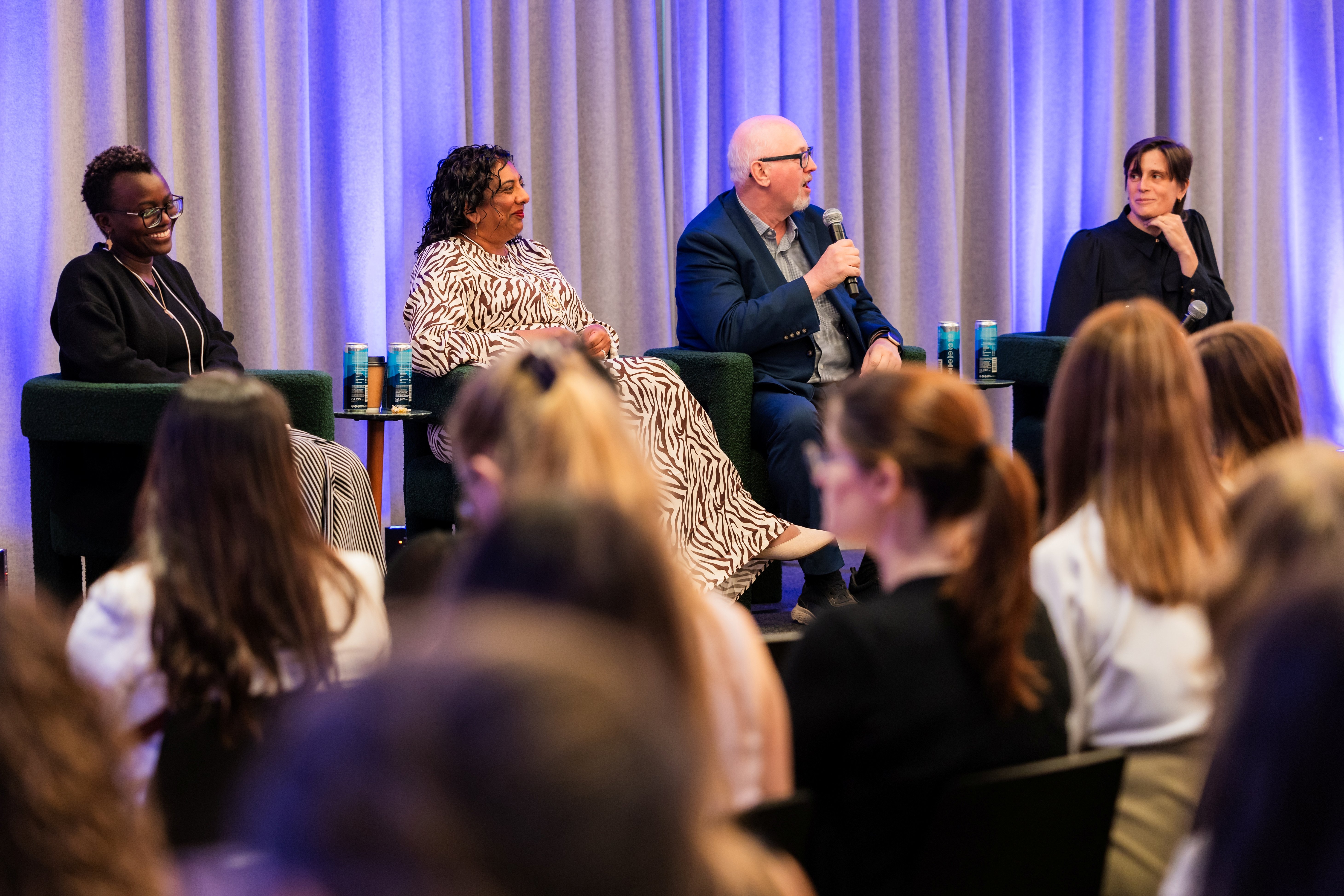
Photo: Peter Cooper, for The Panorama Group
Moderated by reporter Thalia Beaty of The Associated Press, this session featured Matthew Bishop, author of Philanthrocapitalism; Elaine Martyn, Senior Vice President Private Donor Group at Fidelity Charitable; and Beatrice Onyango, Senior Equitable Giving Manager at The Segal Family Foundation. They explored how aid cuts, political shifts, and evolving donor behaviors are reshaping international development and philanthropy.
Speakers emphasized the importance of protecting essential humanitarian programs and gender equality investments, even amid anti-rights backlashes. They also highlighted the need for philanthropic innovation—leveraging tools and partnerships that turn intent into sustained, systemic impact. Examples included donor-advised funds, direct grassroots funding, and collaborative approaches that provide long-term, flexible support to bolster organizational resilience. Across the discussion, one message stood out: bold, values-driven philanthropy must act with courage and flexibility to meet this moment.
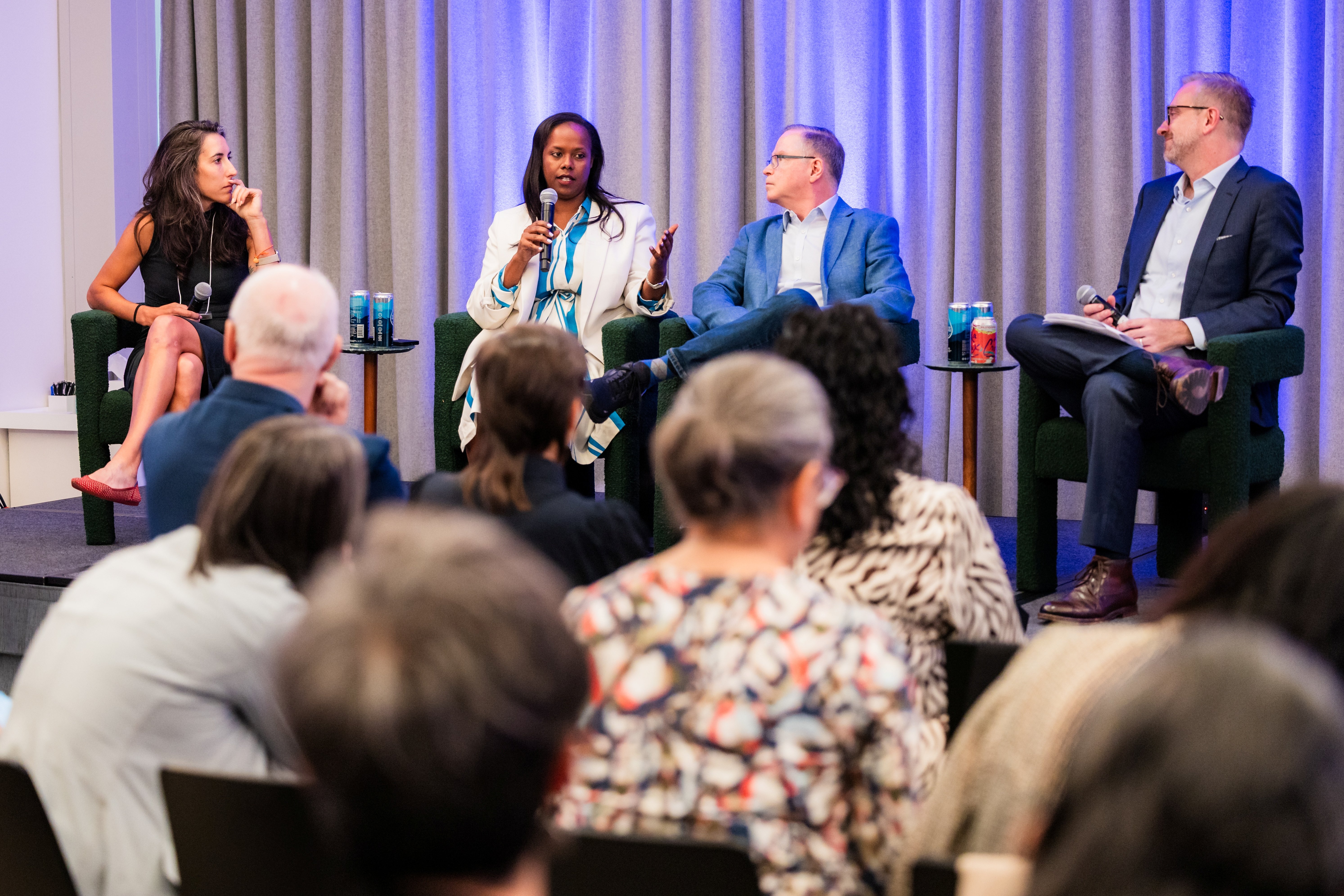
Photo: Peter Cooper, for The Panorama Group
In a world of “polycrisis,” speakers urged leaders to rethink resilience. Jacob Harold, author of The Toolbox: Strategies for Crafting Social Impact, emphasized that the real challenge isn’t the crises themselves, but how we choose to navigate them.
The session showcased bold thinking, from AI-powered maternal health chatbots to nutrition-secure hospital meals in Rwanda. Kendall Turner, Director of The Fund for Alternative Journalism, underscored that reviving legacy media brands isn’t about nostalgia but about rebuilding trust, civic engagement, and sustainable journalism.
Jim Fruchterman, Founder & CEO of Tech Matters, cautioned: “Inflicting bad AI on good people is a bad idea.” Meanwhile, Isabelle Kamariza, President & Founder of Solid’Africa and Panorama Global Board Member, reframed nutrition insecurity as a global issue that transcends income levels: “You can be overfed but malnourished.” The takeaway: resilience means not just surviving disruption, but redesigning the systems that enable equitable, lasting impact.
"You can be overfed but malnourished."
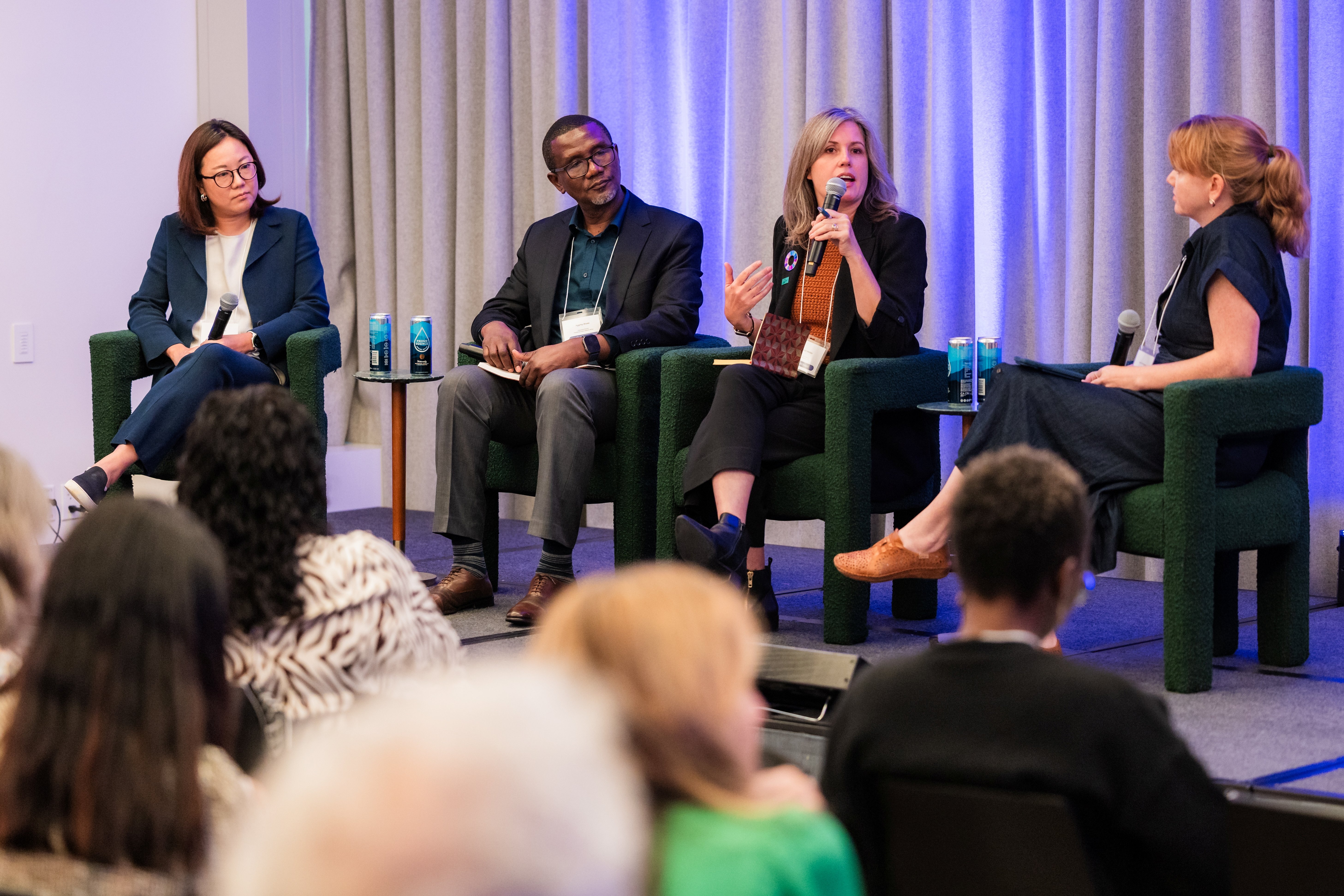
Photo: Peter Cooper, for The Panorama Group
Moderated by Jean Scrimgeour, Co-CEO and Chief Innovation and Operations Officer with Accountability Lab, this session highlighted the potential and complexity of collaboration. Jean reflected, “Networks demand intentional design, trust, humility, and willingness to share risk and reward—and when it works, it changes what’s possible.”
Panelists, including Aggrey Aluso, Executive Director of Resilience Action Network Africa; Alison Holder, Executive Director of Equal Measures 2030; and Sonia Park, Managing Director of Strategic Engagement at Namati, emphasized the need for more flexible, multi-year funding to sustain networks. Sonia also reminded attendees that collaboration not only advances impact but also sustains leaders themselves. In her words, “It makes the work more fun and makes us stronger.”
The Leadership Forum reaffirmed the power of showing up. Especially in a time of instability, moments like UNGA create opportunities to accelerate action, amplify diverse perspectives, and build the connective tissue needed for change.
To learn more, check out our event photos and watch our recap video.
 Your Vision
Your Vision Our Platform
Our Platform Real impact
Real impactPanorama Global is a member of The Panorama Group.
Privacy Policy © 2026 Panorama Global. All rights reserved.
